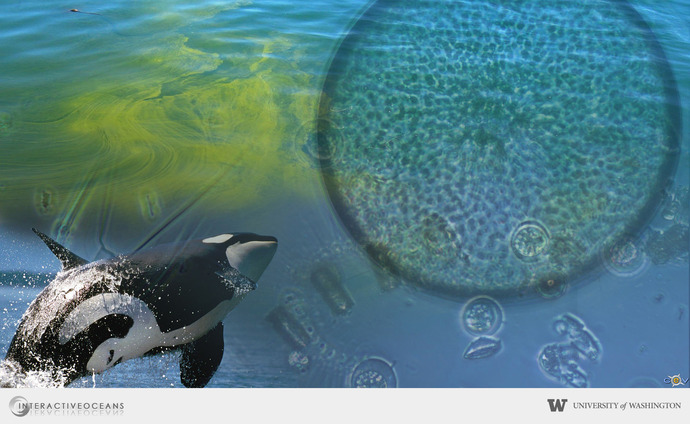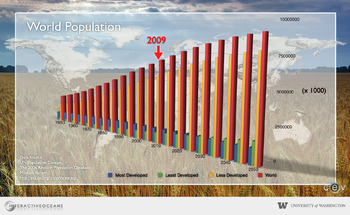The oceans govern the health of our planet.
Coastal zones in the U.S. are associated with trillion-dollar industries. Worldwide, over 2 billion people rely on seafood and products from the sea for their sustenance, and this number continues to increase.
World population is estimated to increase from 7.5 billion to 8.5 billion by 2025. The past rise in human population has already triggered dramatic changes in coastal ecosystems resulting in significant depletion in stocks of fish and shellfish, increased pollution in waterways and coastal environments, and increased pressures on marine mammals.
In the past few decades there has been a growing awareness of the strong linkages between Earth’s oceans and human health. Examples of such connections include the following:
- Harmful algal blooms that produce red tides that impact our ability to harvest shellfish
- Cholera outbreaks related to ocean temperature-chemical variations that occur during El Niño events in the Southern Ocean, and perhaps when the Indian Ocean is in its Dipole/Zonal mode
- Incorporation of toxins into fish and marine mammals that are then ingested by humans.
The complexity, vastness, and dynamic nature of the ocean provide challenges in understanding and monitoring environmental changes, and the impact these changes have on human health. New multidisciplinary centers, such as the University of Washington’s Pacific Northwest Center for Human Health and Ocean Studies, are conducting research aimed at better understanding these issues.
The advanced technologies, opportunities for deployment of state-of-the-art sensor arrays, adaptive sampling, and real-time communications provide by NSF Ocean Observatories Initiative infrastructure and resultant new predictive models will form a critical component to investigating how changing environmental conditions in the oceans impact human health. Such information is essential to making informed policy and management decisions in the future.









